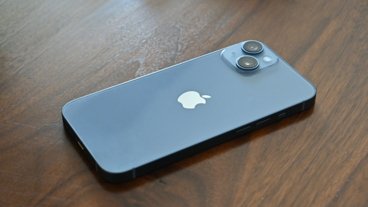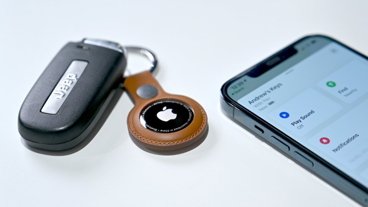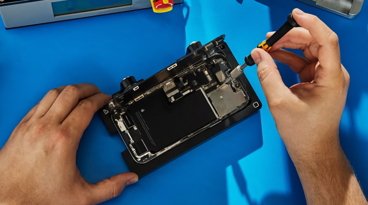Steve Jobs wanted Apple to build own cell network for first iPhone
In a speech on Monday at the Law Seminars International event in Seattle, wireless industry pioneer John Stanton said Jobs looked to create a proprietary wireless network for Apple's upcoming iPhone rather than work with existing carriers, reports Macworld.
Stanton, who is now chairman of venture capital firm Trilogy Partners, said he met with the former Apple chief between 2005 and 2007 to discuss the creation of a new network built on the unlicensed WiFi spectrum. The move would give Apple the ability to manufacture a mobile handset as well as be in control of the service that supported the device.
"[Jobs] wanted to replace carriers," Stanton said. "He and I spent a lot of time talking about whether synthetically you could create a carrier using Wi-Fi spectrum. That was part of his vision."
Jobs ultimately dropped the idea in 2007, however he still managed to have a huge impact on wireless operators who wanted to carry Apple's popular device. Most recently Sprint made a nearly $20 billion four-year deal with Apple to become an authorized iPhone carrier.
"If I were a carrier, I'd be concerned about the dramatic shift in power that occurred," Stanton said.
He went on to explain that Apple sells software and services through outlets like the App Store and iTunes that might have otherwise gone to the operators. iOS apps download numbers continue to grow, recently reaching the 15 billion download mark, and look to be a significant source of revenue for the company in the coming year.
Stanton advises current wireless carriers to take chances with new phones and services rather than relying on established products. When he was head of Voicestream, the operator that later became T-Mobile, Stanton invested in Sidekick inventor Danger and Research in Motion.
"We had investments in those spaces because in part we were the little guy and we wanted access to unique devices," he said.
The issue of being carrier independent isn't completely unheard of as AppleInsider previously reported on Apple's granted patent filings in February that could allow future iPhones to select preferred wireless carriers by creating a mobile virtual network operator (MVNO) system. If ever instituted, the system would call for carriers against each other over wireless services provided to iPhone users. The original patent filing dates back to April, 2008.
 Mikey Campbell
Mikey Campbell










 Andrew Orr
Andrew Orr
 Sponsored Content
Sponsored Content
 Malcolm Owen
Malcolm Owen

 William Gallagher
William Gallagher

 Mike Wuerthele
Mike Wuerthele
 Christine McKee
Christine McKee







